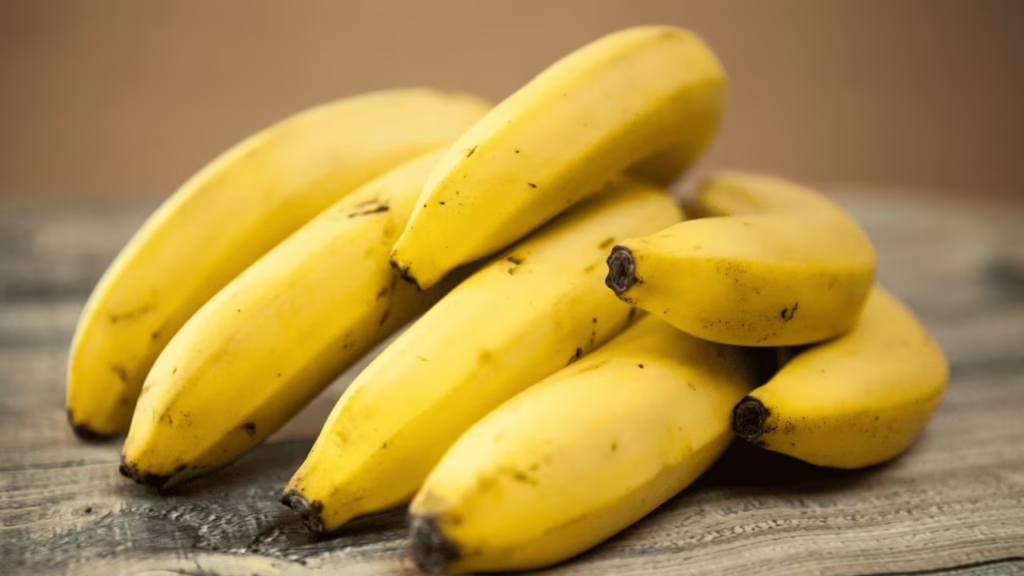
Aging is a journey we all embark on, and while we can’t stop time, we can certainly influence how gracefully we move through it. Imagine this: my grandmother, at 82, still tends her garden with the energy of someone half her age. Her secret? A lifelong love for fruits, which she swears keep her spry and sharp. From vibrant berries to juicy oranges, fruits are more than just nature’s candy—they’re packed with nutrients that support our bodies as we age. In this in-depth exploration, we’ll uncover how fruits contribute to healthy aging, weaving together science, stories, and practical tips to help you embrace your golden years with vitality. Let’s dive into the colorful world of fruits and discover why they’re a cornerstone of a long, healthy life.
The Science of Aging and Nutrition
Aging isn’t just about wrinkles or gray hair—it’s a complex process involving cellular changes, oxidative stress, and inflammation. As we age, our bodies face increased wear and tear from free radicals, unstable molecules that damage cells and accelerate aging. This is where fruits come in. Packed with antioxidants, vitamins, and minerals, fruits act like a shield, protecting our cells and supporting overall health. According to the National Institute on Aging, a nutrient-rich diet can reduce the risk of chronic diseases like heart disease and diabetes, which become more common with age.
Fruits are nature’s multivitamins, offering a symphony of nutrients that work together to combat aging. For example, vitamin C in citrus fruits boosts collagen production for skin elasticity, while potassium in bananas supports heart health. My grandmother’s daily bowl of mixed berries isn’t just a treat—it’s a science-backed strategy to keep her cells youthful. By incorporating a variety of fruits into your diet, you’re not just eating tasty food; you’re investing in your body’s future.
Why Fruits Are Anti-Aging Powerhouses
Fruits are uniquely equipped to support healthy aging because they’re loaded with compounds that target the root causes of age-related decline. Let’s break down the key players:
- Antioxidants: Found in berries, pomegranates, and grapes, antioxidants like anthocyanins and flavonoids neutralize free radicals, reducing oxidative stress. A study from the Journal of Agricultural and Food Chemistry highlights that blueberries have one of the highest antioxidant capacities among fruits, protecting brain cells from age-related damage.
- Fiber: Apples, pears, and prunes are rich in dietary fiber, which supports gut health and regulates blood sugar. A healthy gut is linked to better immunity and mood, both critical for aging well, as noted by the Harvard T.H. Chan School of Public Health.
- Vitamins and Minerals: Oranges, mangoes, and kiwis provide vitamin C for skin health, while bananas and avocados offer potassium for blood pressure regulation. The World Health Organization recommends at least 400 grams of fruits and vegetables daily to meet these nutrient needs.
- Hydration: Water-rich fruits like watermelon and cantaloupe keep you hydrated, supporting skin health and kidney function, which can decline with age.
I remember my friend Sarah, who started adding a fruit smoothie to her morning routine. Within weeks, she noticed her skin looked brighter and her energy levels soared. It’s not magic—it’s the power of fruits working at the cellular level to promote vitality.
Fruits for Heart Health: A Beat That Keeps Going
Heart disease is a leading cause of death among older adults, but fruits can help keep your ticker in top shape. The potassium in bananas and oranges helps regulate blood pressure, reducing strain on the heart. Berries, rich in anthocyanins, improve cholesterol levels and reduce inflammation, as shown in a study by the American Heart Association. My uncle, a retired firefighter, credits his daily apple and handful of strawberries for helping him manage his blood pressure without medication.
Fruits also contain heart-healthy fats. Avocados, for instance, are packed with monounsaturated fats that lower bad cholesterol. Pairing fruits with other heart-healthy foods, like nuts or whole grains, creates a synergistic effect. Picture this: a breakfast of oatmeal topped with sliced bananas and blueberries—not only delicious but a heart-protecting powerhouse.
Brain Boosters: Fruits for Cognitive Health
As we age, cognitive decline becomes a concern, but fruits can help keep your mind sharp. Blueberries, often called “brain berries,” are packed with flavonoids that improve memory and slow cognitive decline, according to research from Tufts University. I recall visiting a senior center where a group of retirees swore by their daily dose of mixed berries, claiming it helped them stay sharp for their weekly trivia nights.
Citrus fruits like oranges and grapefruits are also brain-friendly, thanks to their high vitamin C content, which supports neurotransmitter production. Even tropical fruits like mangoes, rich in vitamin B6, play a role in mood regulation. By adding a variety of fruits to your diet, you’re not just feeding your body—you’re nourishing your mind.
Skin Deep: Fruits for Radiant Aging
Who doesn’t want glowing skin at any age? Fruits are a natural way to keep your skin youthful. Vitamin C-rich fruits like kiwis and strawberries boost collagen production, which keeps skin firm and reduces wrinkles. A study from the American Journal of Clinical Nutrition found that higher vitamin C intake is linked to fewer wrinkles and less skin dryness.
I once met a dermatologist who recommended eating an orange a day instead of expensive creams. She explained that the antioxidants in fruits protect skin from UV damage and pollution, common culprits of premature aging. Watermelon, with its high water content and lycopene, hydrates skin and fights free radicals. Next time you’re tempted by a pricey skincare product, try reaching for a fruit basket instead.
Strong Bones and Joints: Fruits for Mobility
Bone health is critical for staying active as we age, and fruits play a surprising role. Oranges and figs are rich in calcium and magnesium, essential for bone strength. The National Osteoporosis Foundation notes that a diet rich in fruits and vegetables supports bone density, reducing the risk of fractures.
Fruits like pineapples also contain anti-inflammatory compounds like bromelain, which can ease joint pain. My neighbor, a marathon runner in her 60s, swears by pineapple smoothies to keep her joints flexible. By pairing fruits with weight-bearing exercises, you can maintain mobility and independence well into your later years.
A Fruitful Comparison: Top Fruits for Healthy Aging
To help you choose the best fruits for aging gracefully, here’s a comparison of some top contenders:
| Fruit | Key Nutrients | Aging Benefit | Best Way to Enjoy |
|---|---|---|---|
| Blueberries | Antioxidants, Vitamin C, Fiber | Brain health, reduced inflammation | Fresh in smoothies or as a snack |
| Oranges | Vitamin C, Potassium, Fiber | Skin health, heart health | Juiced or eaten fresh |
| Avocados | Healthy fats, Potassium, Vitamin E | Heart health, skin hydration | Mashed on toast or in salads |
| Bananas | Potassium, Vitamin B6, Fiber | Heart health, muscle function | Sliced in cereal or blended in smoothies |
| Pomegranates | Antioxidants, Vitamin C, Folate | Heart health, reduced oxidative stress | Seeds sprinkled on yogurt or salads |
This table highlights how different fruits target specific aspects of aging, making it easy to diversify your diet. Experiment with these fruits to find your favorites and reap their benefits.
Practical Tips for Adding Fruits to Your Diet
Incorporating fruits into your daily routine doesn’t have to be complicated. Here are some actionable ideas to make fruits a seamless part of your life:
- Start Your Day with Fruit: Blend a smoothie with spinach, berries, and a banana for a nutrient-packed breakfast. It’s quick, delicious, and sets a healthy tone for the day.
- Snack Smart: Keep a bowl of washed grapes or apple slices on your counter for easy snacking. Pair with a handful of nuts for a balanced treat.
- Get Creative with Meals: Add diced mango to salads or use avocado as a creamy base for dressings. Fruits can elevate both flavor and nutrition.
- Freeze for Convenience: Frozen berries are just as nutritious as fresh and perfect for smoothies or desserts. Stock up when they’re in season.
- Try New Fruits: Visit a local farmer’s market to discover exotic fruits like dragon fruit or persimmons. Variety keeps your diet exciting and nutrient-rich.
When I started freezing berries for my smoothies, it was a game-changer. Not only did it save time, but it also meant I always had a healthy option on hand, even on busy days.
Overcoming Barriers to Eating More Fruits
Despite their benefits, some people struggle to eat enough fruits. Common barriers include cost, availability, or simply not knowing how to prepare them. Here’s how to overcome these hurdles:
- Budget-Friendly Options: Opt for seasonal or frozen fruits, which are often more affordable. The USDA suggests buying in bulk during peak seasons to save money.
- Convenience: Pre-cut fruits or canned options (in water or juice, not syrup) are great for busy schedules. Keep them in your pantry for quick access.
- Taste Preferences: If you’re not a fan of certain fruits, experiment with different preparations. Roasting peaches or grilling pineapple can transform their flavor.
My cousin used to avoid fruits because she found them boring. I introduced her to grilled fruit skewers, and now she’s hooked. Sometimes, it’s all about finding the right approach.
FAQ: Your Questions About Fruits and Aging Answered
Q: How many fruits should I eat daily to support healthy aging?
A: The World Health Organization recommends 2–3 servings of fruit daily (about 400 grams total). A serving could be one medium apple, a cup of berries, or half an avocado.
Q: Are fresh fruits better than frozen or canned?
A: Fresh, frozen, and canned fruits (without added sugar) are all nutritious. Frozen fruits retain most nutrients and are convenient, while fresh fruits offer peak flavor when in season.
Q: Can fruits help with specific age-related conditions like arthritis?
A: Yes, fruits like pineapples (with bromelain) and cherries (with anti-inflammatory compounds) can reduce joint pain and inflammation, as supported by research from the Arthritis Foundation.
Q: Do fruit juices count toward my daily fruit intake?
A: Whole fruits are better than juices, which often lack fiber and may contain added sugars. If you choose juice, opt for 100% fruit juice and limit to one small glass daily.
Q: Can eating too many fruits be harmful?
A: While fruits are healthy, overeating can lead to excess sugar intake, especially for those with diabetes. Balance fruits with other food groups and consult a doctor if you have specific health concerns.
Conclusion: Embrace Fruits for a Vibrant Future
As we’ve explored, fruits are more than just a sweet treat—they’re a cornerstone of healthy aging. From protecting your heart with berries to keeping your skin radiant with citrus, fruits offer a rainbow of benefits that support your body and mind. My grandmother’s garden, filled with fruit trees, is a testament to the joy and vitality that come from embracing nature’s bounty. By making fruits a daily habit, you’re not just eating well—you’re investing in a future where you feel strong, sharp, and full of life.
To get started, try adding one new fruit to your diet this week. Visit a local market, experiment with a new recipe, or blend a smoothie to kickstart your day. The beauty of fruits is their versatility—whether you’re savoring a crisp apple or tossing pomegranate seeds into a salad, there’s a fruit for every taste and lifestyle. As you embark on your healthy aging journey, let fruits be your colorful companions, guiding you toward a vibrant, fulfilling life. What’s your favorite fruit, and how will you make it a part of your daily routine? The possibilities are as endless as the flavors in nature’s orchard.
